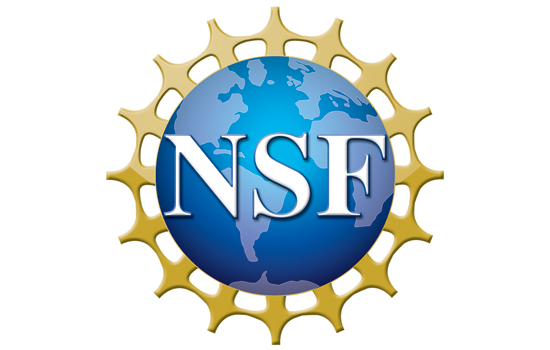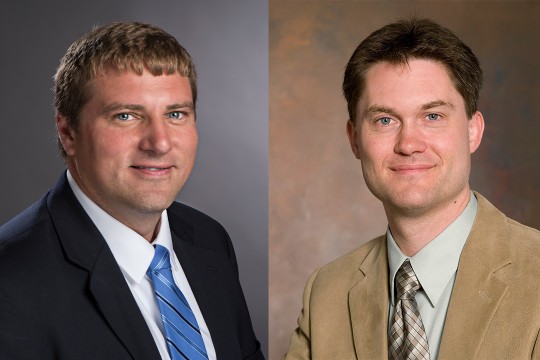RIT one of the nation’s top universities for NSF undergraduate research
Undergraduate students from across the nation come to RIT for summer of research
Rochester Institute of Technology is hosting seven federally funded research programs this summer, the most of any college in New York state.
More than 50 undergraduate students from around the country are in Rochester to try their hand at research as part of the Research Experience for Undergraduates (REU) program through the National Science Foundation (NSF). RIT has received nearly $2 million in funding to support these programs.
Throughout the 10-week program, students work with an interdisciplinary team of students and RIT faculty to complete a research project in their respective areas. The goal of the REU is not merely to help young researchers break new ground in each of the fields, but to help a diverse group of students develop a passion for performing research.
To encourage connections in the program, students can attend the REU Graduate Study and Research Symposium from 8:15 a.m. to 1:30 p.m. June 22 in Louise Slaughter Hall room 2210-2240. Students will hear about research from faculty members, advice from Ph.D. students and keynote speaker Nicholas Battista, an assistant professor of mathematics at the College of New Jersey. Battista received bachelor’s degrees in physics and applied mathematics from RIT in 2009, as well as a masters in applied and computational math in 2010.
“Students arrive at REU programs from a variety of different academic and geographical backgrounds, many from schools that lack the undergraduate research resources we have here on campus that are so critical for students who will continue on in their academic and technical careers after graduation,” said Darren Narayan, a professor of mathematics at RIT and PI of an REU. “Through these programs, as well as the lasting connections that students make with faculty and other students here before returning to their home institution, we help them to build up the networks that will aid them as they make their future academic and career plans.”
The seven NSF-funded Research Experience for Undergraduates sites at RIT are:
• Geographic Information Systems (GIS) for Disaster Resilience Spatial Thinking: Led by Brian Tomaszewski, associate professor in the Department of Information Sciences and Technologies, and director of the Centre for Geographic Information Science and Technology, and David Schwartz, professor and chair of the School of Interactive Games and Media.
• Computational Sensing: Led by Cecilia Ovesdotter Alm, associate professor in the College of Liberal Arts, and Reynold Bailey, associate professor of computer science.
• Extremal Graph Theory and Dynamical Systems: Led by Darren Narayan, professor of mathematics.
• Cultivating Next Generation Software Engineering Researchers: Led by Mehdi Mirakhorli, assistant professor of software engineering.
• Summer Undergraduate Research for Students who are Deaf or Hard-of-Hearing in Applying Mathematical and Statistical Methods to Problems from the Sciences: Led by Bonnie Jacob, assistant professor of mathematical modeling.
• Imaging in the Physical Sciences: Led by Roger Dube, professor of imaging science.
• Multimessenger Astrophysics: Led by Joshua Faber, associate professor in RIT’s School of Mathematical Sciences.
The NSF-funded REU program is designed to open U.S. students’ minds to graduate school and build life-long capabilities for continued research careers. The NSF is currently funding 721 REU sites across the country.
At the end of the summer, students at RIT will present their projects at RIT’s annual Undergraduate Research Symposium, held Aug. 3.













